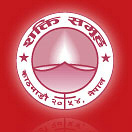Bulletin 2
Bulletin 2 (August 2010)
Professor Diane Richardson, Principal Investigator, Newcastle University, UK
Professor Nina Laurie, Co-Applicant, Newcastle University, UK
Dr Janet Townsend, Co-Applicant Newcastle University, UK
Dr Meena Poudel, Research Associate Newcastle University and IOM, Nepal
This large ESRC project runs from November 2009 to April 2012 and is acollaboration between Newcastle University, the Non Government Organisation ‘Shakti Samuha’ and the International Organisation for Migration (IOM) Mission in Nepal. It aims to explore the situation of returnee trafficked women. To date there has been little research on post trafficking livelihoods nor how the issues raised by trafficking intersect with development agendas. A key aspect of this research is to gain knowledge that is grounded in the actual experiences of the Nepalese trafficked returnee women themselves. We are interested in how returnee livelihoods intersect with sexuality and citizenship.
Emergent Findings
For most returnee women who have opted for marriage as a livelihood strategy to manage stigma, being able to keep her trafficked identity a secret from her husband or her husband’s family is important to avoid personal risk. Individual strategies of dealing with stigma and poverty focus heavily on the labour market. NGOs play an important role in providing skills training some focusing on traditional jobs like sewing, cooking and carpet making. So far interviews suggest that these jobs seldom generate enough income to provide sustainable livelihoods. Some NGOs provide start-up funding for women launching their own businesses, including ‘non-traditional’ occupations like driving ‘tempos’ (moto-rickshaws) or working as plumbers or electricians. Some non-traditional occupations are better options than others as many women face work-place prejudice. Jobs like plumbers and electricians require building up a client base and going into people’s homes to work. These situations raise issues of confidence and personal safety which are a wider concern more generally for returnee women seeking jobs after training.
Fieldwork
Phase one fieldwork (stakeholder meetings, sample selection and pilot interviews) started in February and was affected by the political situation in Nepal. As a result the ESRC granted a six month project extension. To date the pilot and eleven of the forty five interviews with returnee women have been conducted, in Kathmandu. Rural fieldwork is scheduled to start after the rainy season in October 2010. The three rural sites selected (one from the far west, Kailali and two from the Central Development Region, Sindhupalchok and Makawanpur) rank low on poverty indexes and have high occurrences of trafficking. They are inhabited by diverse caste/ethnic groups, who speak different languages/dialects, practise different religions and experience forms of violence perpetuated by the diversified socio-cultural practices that contribute to trafficking. Each site plays a significant role in trafficking either as an exit/transit point to India or an entry/transit point to Nepal.
Forthcoming Publications
- Laurie, N., M. Poudel, D. Richardson and J. Townsend (2010) Sexual trafficking, poverty, marginalization and citizenship in Nepal. Working paper for the international conference “Ten years of ‘war against poverty’: what have we learned since 2000 and what should we do 2010-2020?”. The University of Manchester, 8-10 September 2010
- Richardson, D. ‘Sexualities’ Guest editor of special issue of Sociology, October 2010
We will be presenting at the following seminars during autumn 2010
Geography Department, University College London, Feminist Geography research seminar series, October 5th, 2010
'Dialogues in Human Geography' Research Seminar Series, Institute of Geography and Earth Sciences, Aberystwyth University. 4th November, 2010
During autumn 2010 Professor Richardson will be a visiting fellow at Columbia University, New York, where she will be presenting the project to a range of audiences.
We have contributed to the following during 2010 to date
- NGO training: Shakti Samuha Executive Board members are undertaking research training provided by the project. This is already having an impact as, in the words of one participant, “Now we know what to ask researchers/media interviewers and foreign researchers coming and taping our stories”. This agenda is part of a longer term goal to enable Shakti Samuha to become future authors of their own research.
- Capacity building of government officials on trafficking: A paper was presented on trafficking in a training course on migration management targeting higher level Nepal Government officials (e.g. Joint Secretaries of the Ministry of Women, Labour, Foreign Affairs, Home, Law, Director General of Immigration, Director General of the Department of Foreign Employment, Women dev. officers).
- Orientation for an anti-trafficking NGO in Nepal: Giving conceptual clarity on trafficking (especially showing where trafficking and labour migration are and are not linked) and emphasising the importance of aligning the Nepal Trafficking Law with the UN Optional Protocol on Trafficking.




